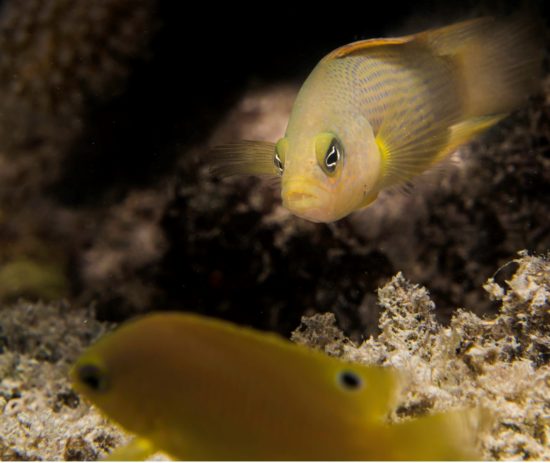


The
current spate of coral bleaching in Australian waters is preventing baby common
damselfish from learning how to identify which fish species are predatory
towards them, according to researchers in Australia and Sweden.
"Baby
fish use chemical alarm signals released from the skin of attacked individuals
to learn the identity of new predators. They mix the alarm cue from their
wounded buddy with the smell or sight of the responsible predator, allowing
them to learn which individuals are dangerous and should be avoided in the
future,” said Professor Mark McCormick, from the ARC Centre of Excellence for
Coral Reef Studies at James Cook University.
This
natural learning process works only within the environment of living corals. If
the surrounding corals are dead, the fish cannot detect the alarm signals.
Dr Oona
Lönnstedt of Uppsala University in Sweden explained that when corals died and
become covered in algae, the olfactory landscape of the reef seemed to change,
and this affected this learning mechanism.
“If the
process of cataloguing and avoiding predators is hindered in some species by
coral degradation and loss, then much of the diversity of reef fish could be
lost too. Many reef fish need specific habitats that only healthy coral reefs
can provide,” she added.
Source: http://www.coralcoe.org.au
 Mares
Mares 17th May 2016
17th May 2016